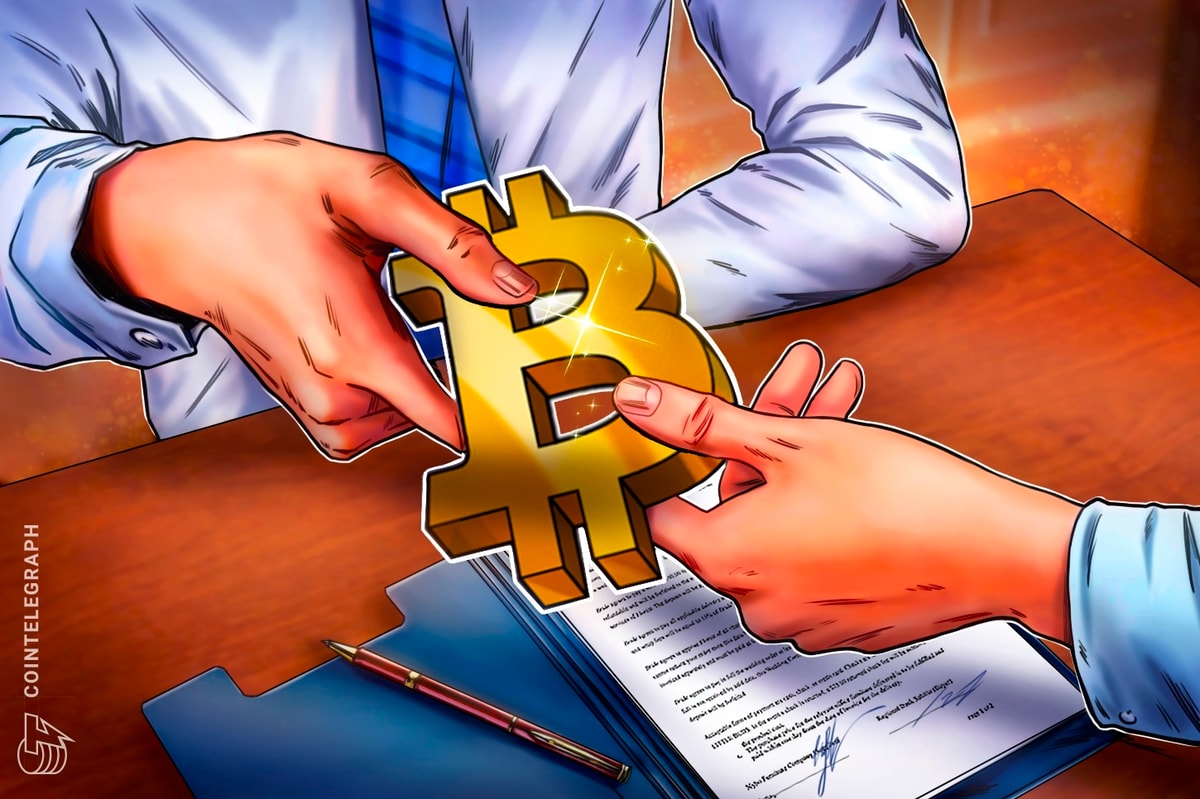
Overstock.com’s rollout of Bitcoin payment acceptance capability last week generated much rejoicing among Bitcoin enthusiasts in the United States. Whether this move by Overstock.com will cause other large retailers to consider the adoption of Bitcoin as an acceptable means of payment remains to be seen. Nevertheless, the list of merchants accepting Bitcoin grows longer every day.
As of the date of this article in early January, Coinmap.org listed 2,504 companies accepting Bitcoin worldwide and Spendbitcoins listed approximately the same number in the US alone. These are, by no means, complete listings, but considering that most businesses are excited to promote their acceptance of Bitcoin, they probably reflect a large portion of the current Bitcoin economy. Even if the real number is four times this amount, Bitcoin is still very small. The excitement generated every time a business announces that it will take Bitcoin conceals the fact that Bitcoin has penetrated only a tiny fraction of retailers on the margins of the US economy.
---
UPDATE: After this post went up, a reader pointed out that Spendbitcoins has 8000+ US listings pending review and Bitpay has more than 20,000 merchants in its network. Bitcoin may be slightly larger than my estimate, but it doesn't change my assertion: Bitcoin is basically microscopic right now compared to the US economy as a whole.
---
Journalist Malcolm Gladwell’s 2000 book “The Tipping Point” is an insightful look at how “ideas, products and messages” take hold in society. In it, Gladwell proposes the idea that certain key factors make the difference between success and failure, or more to the point, that certain factors are key for a concept to go viral. Gladwell’s thesis and his supporting examples are instructive when it comes to a concept that hasn’t quite reached critical mass, like Bitcoin.
Imagine a growth curve that is shaped like a hockey stick. For the first block of time, growth is slow (the blade of the stick). Then, something changes: the tipping point (the shaft of the stick). After that, growth takes off into widespread acceptance and adoption. How far Bitcoin can go is dependent on government action, popular perception and a variety of other largely unpredictable factors. However, I suggest that there is at least one macro-level development that could push Bitcoin to the tipping point worldwide and some indication that it just might happen.
According to the Census Bureau, there are slightly more than 27,000,000 firms active in the United States, the vast majority of which are the sort of small, independent shops that might be inclined to become early adopters of Bitcoin. However, Walmart alone accounts for more than 2 of annual GDP in the United States. This one firm is second only to the Department of Defense for number of domestic employees and commands such a large portion of the US retail pie that it has been credited by some economists with depressing the rate of inflation. Consider a few other observations about Walmart that demonstrate the retailer’s influence:
- Walmart claims that some 200 million Americans patronize its stores, or approximately 60 of the population. Though Walmart customers are likely to have lower incomes than the national average, a study by the Massachusetts Institute of Technology indicated that “Walmart’s discounting on food alone boosts the welfare of American shoppers by at least $50 billion per year.”
- Walmart has been accused of using its market power to force suppliers such as Procter & Gamble (no small player itself) into less favorable pricing arrangements in the name of lower prices for its own customers. Since these firms are thus less profitable than they might otherwise be, they offer less generous pay and benefits to their employees, engage in research and development at a less aggressive rate and are more likely to locate manufacturing plants offshore in order to stay profitable.
- Walmart collects and analyzes an unprecedented amount of data. The company is known to possess one of the largest private data stores in the world which it uses to analyze consumer buying habits, among other things (the data is also shared with suppliers for marketing purposes). This data has been used over the last five years to adapt Walmart’s existing “one size fits all” store model to one that recognizes and caters to six core demographic target groups based on the location of each store. As recently as the mid 2000’s, this network was said to contain more data than the entire world wide web (Fishman, “The Wal-Mart Effect”).
Walmart’s modus operandi is to use market power backed by big data to wring cost savings out of every possible nook and cranny of its operation and its supply chain. Even Walmart’s managers and executives are not spared from the cost cutting, as they are rumored to travel by bus and stay two to a room at budget motels. These cost savings are largely passed on to consumers in the form of lower prices, with the balance being put toward store growth and other forms of development. However, one area has so far eluded the company’s best cost reduction efforts: credit card fees.
Exactly what Walmart pays for the privilege of accepting Visa, MasterCard and the others is not publicly known, but 2 would probably not be an unreasonable estimate (this would already be almost a full percentage point lower than smaller retailers pay). For a retailer as large as Walmart in an industry with margins as small as grocery, a 2 increase in profitability is huge. Bitcoin holds promise as a nearly-free alternative that isn’t controlled by a central authority with which Walmart would need to negotiate. Further, Walmart possesses the clout with suppliers to influence them to also accept Bitcoin, which would save Walmart not only fees on Bitcoin exchange, but also relieve it of the expense of hedging against foreign exchange losses on forward contracts for goods imported from abroad. These suppliers, in turn, would have a vested interest in finding a use for Bitcoin (such as employee salaries, bonuses, or paying their own suppliers) and the systems in place to allow acceptance to proliferate to customers other than Walmart.
In the past, Walmart has attempted a variety of measures to save money on its credit card processing fees. For example, in 2003 Walmart stopped accepting MasterCard branded cards briefly after an attempt to strong-arm the credit card company into charging lower fees failed. In 2007, the company attempted to acquire an industrial bank charter in Utah which would have allowed it to process its own credit card transactions, but withdrew its application following an aggressive lobbying campaign by existing retail banks. More recently, Walmart has partnered with American Express (BlueBird) and with Green Dot (MoneyCard) to offer branded pre-paid cards to its customers for which it likely pays lower processing fees (and perhaps also receives a kickback).
A substantial portion of Walmart shoppers are unbanked. Many of these consumers are distrustful of banks or believe that they cannot afford a bank account. Thus, Bitcoin is an attractive alternative for this demographic for the same reason that it is for many others: desire to avoid banks. Walmart’s target demographic is not characterized by early adoption of emerging technologies, but Bitcoin is easily deployed via a smart phone app. This particular aspect of the case for Walmart’s acceptance of Bitcoin provides an additional opportunity for cost savings, as these consumers would mostly not have used payment cards anyway. This means that Walmart has an opportunity to reduce the cost and risk of theft associated with handling cash and checks.
Walmart’s greatest challenge here is how to get customers to adopt Bitcoin so that it can be spent in their stores. Above all else, Walmart’s mere acceptance of Bitcoin might be enough to get its customers to adopt it. Even if Walmart only deployed Bitcoin acceptance online, the savings on processing fees would be substantial. To drive use in stores, the company could install Bitcoin ATM’s at every store and offer consumers a small discount for paying in Bitcoin. Walmart already offers paycheck and Treasury check cashing services. They could offer a lower fee to have all or a portion of the proceeds paid out in Bitcoin (and probably book a small amount in arbitrage on the side). Since many employees are also Walmart shoppers, the company could offer them the option of having part of their salaries paid in Bitcoin. Walmart could set aside one or more self-check stands for the exclusive use of Bitcoin, which might be a very attractive incentive to consumers who dislike waiting in line during busy times.
Walmart is particularly adept at knowing its customers and adapting itself whenever necessary. Walmart’s acceptance could push Bitcoin past the tipping point to widespread acceptance. There is reason to believe that this is at least possible, if not likely. The company already knows all about Bitcoin and has almost certainly at least considered whether and how to adopt it. Walmart is perhaps the only company United States with both incentive to drive Bitcoin’s adoption and the political and economic influence to make sure that it happens. While not known for being a first mover, the success of other large retailers (if indeed they are successful with Bitcoin) may encourage Walmart to take a hard look at how crypto currency can improve its bottom line.










